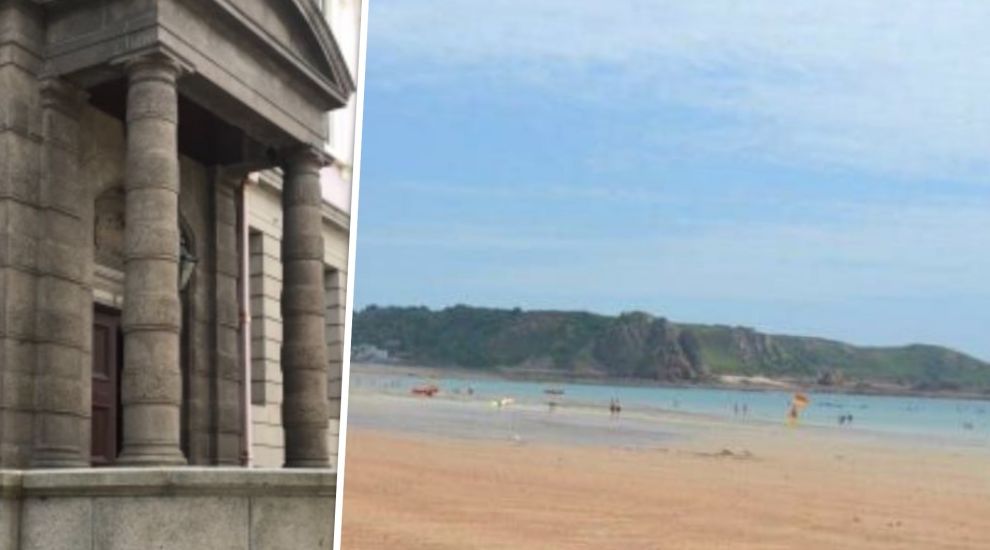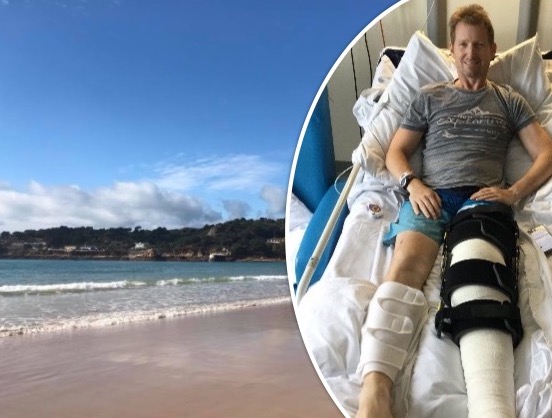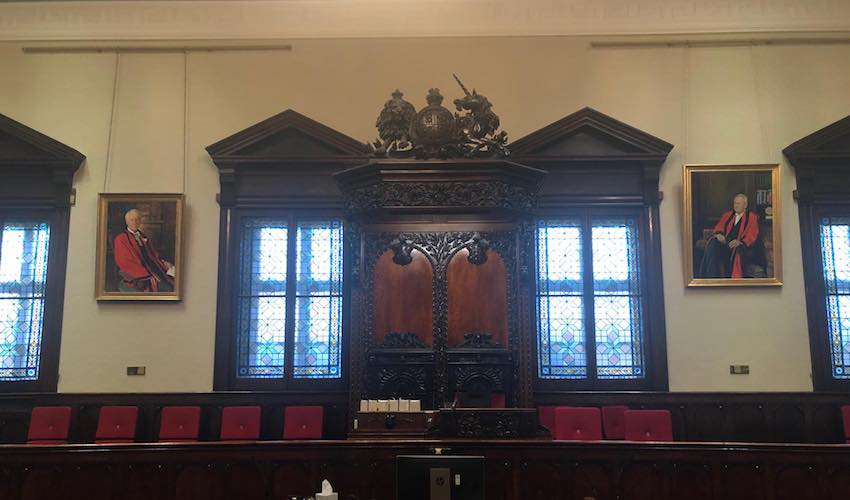


The Royal Court has reserved its judgment in a dispute over how far the drivers of a speedboat and jet-ski were responsible for a crash that left a local lawyer with a “traumatic and disfiguring" leg injury.
Giles Corbin brought a civil case against Michael Dorynek, the driver of the speedboat which ‘T-boned’ the jet-ski he was on, and the jet-ski driver, Tyson Flath, following a collision on 19 June 2017.
Only the speedboat driver has faced criminal proceedings over the collision, being fined £5,000 for driving without due care and attention in 2019 - but Mr Corbin argues that both drivers showed “negligence or breach of duty”.
Opening last Monday, the case saw the trio involved in the crash each take to the dock to give evidence. They were followed by experts in naval architecture, who discussed the speed and angle of the vessels at the time of collision, and experts in seamanship, who covered regulation and guided the Court on “best practice at sea”.
Yesterday, each of the trio's lawyers made their closing submissions to Royal Court Commissioner Sir Michael Birt, and Jurats Jane Ronge and Dr Gareth Hughes, who heard the case.

Pictured: Mr Corbin receiving treatment for his injuries following the crash in June 2017.
For Mr Corbin, Advocate David Benest began by arguing that the drivers of both vessels would have seen one another “had they been behaving as they should”.
He said both Mr Dorynek and Mr Flath had made mistakes, which he said were not innocent ones.
“The accident wouldn’t have happened if both or either of the vessels had not been negligent,” he commented, later adding: “How on earth did this accident happen if both were doing what they were supposed to and keeping a proper lookout?”
Advocate Benest further criticised the defendants’ lawyers and the experts they respectively asked to write reports about the incident, saying they had taken a “highly selective view” of the collision.
Concluding, he repeated: “This collision, this accident, this catastrophic event would not have occurred had either of Mr Dorynek or Mr Flath had kept a proper lookout, one for the other."

Pictured: The civil case was heard before the Royal Court.
Representing speedboat driver Mr Dorynek, Advocate Christina Hall said he had been consistent in his version of events and argued his evidence could only mean the jet-ski had originally been behind him.
Advocate Hall argued that it was jet-ski driver Mr Flath who should have keept a proper lookout, not only in the five-mile zone but also outside of it.
She said the jet ski was approaching as soon as it left the five-mile zone and appeared to be overtaking the speedboat from the moment Mr Dorynek first saw it.
She said Mr Flath had failed “entirely to give way” and was completely to blame.
“[Mr Flath] should have kept well clear and he did the opposite,” she said.
Advocate Hall concluded Mr Dorynek couldn’t have avoided the collision as he was on the “less maneuverable vessel”.
On behalf of jet-ski driver Mr Flath, Advocate Franckel rejected the view that the sea vessel drivers shared joint liability for the crash, instead describing it as “concurrent liability”.
Offering an alternative version of events, he explained: “We say it’s the approach of Mr Dorynek from behind where the speedboat is going noticeably faster that gives the best explanation as to why the accident happened."
Advocate Franckel went on to describe Mr Dorynek’s credibility as a “matter of considerable uncertainty”, arguing that he hadn’t said he had kept a lookout until he was before the Court.
“We say and we maintain that he lied about what happened after the accident,” he said.
He also suggested Mr Dorynek’s experience of English was not as it seems and that it wasn’t credible he needed every word to be translated as he had been living in the island for 17 years, and that his evidence about the speedboat’s kill cord - an emergency safety device that had been disabled - was “not clear”.
Advocate Franckel said those were “not small or irrelevant lies”, but went to “the root of fault of the accident… to avoid liability for himself and pass it on to Mr Flath”.
He said that due to Mr Dorynek’s failure to have even the “most basic appreciation of what he should be doing” he was never in a position to deal properly with seeing the jet-ski.
He concluded that, as a matter of “good seamanship”, a significantly higher proportion of the blame lay with Mr Dorynek.
The Court has reserved its judgment which will be handed down at a later date.
Comments
Comments on this story express the views of the commentator only, not Bailiwick Publishing. We are unable to guarantee the accuracy of any of those comments.